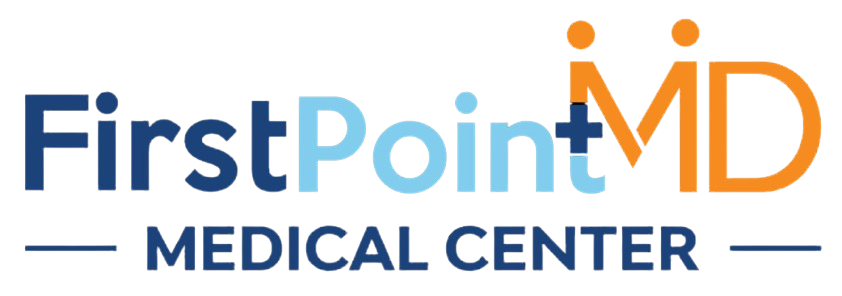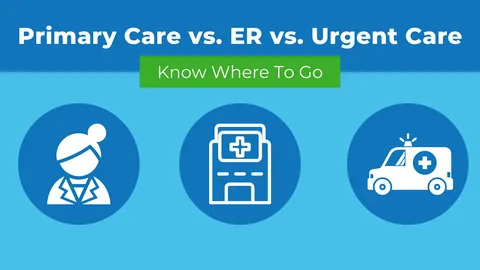When you’re feeling unwell or facing a health concern, deciding where to go for medical care can be confusing. Should you book an appointment with your Primary Care doctor or head to an urgent care clinic? While both options provide valuable healthcare services, they serve different purposes.
Understanding the difference between primary care and urgent care can help you make the right choice, save time, and get the most appropriate treatment for your needs.
What Is Primary Care?
Primary Care is the foundation of your long-term health management. Your primary care provider (PCP) is typically a family physician, internist, or nurse practitioner who:
-
Knows your medical history
-
Manages preventive care and chronic conditions
-
Provides annual checkups and screenings
-
Coordinates care with specialists
Services often include:
-
Routine physical exams
-
Immunizations and preventive care
-
Management of chronic diseases like diabetes, high blood pressure, or asthma
-
Health education and lifestyle counseling
Primary care focuses on building a lasting relationship with patients, ensuring continuity of care over time.
What Is Urgent Care?
Urgent care clinics are designed for non-life-threatening health issues that require immediate attention but can’t wait for a scheduled doctor’s appointment. They are usually open evenings, weekends, and holidays, offering walk-in services.
Common conditions treated in urgent care include:
-
Minor cuts and wounds needing stitches
-
Sprains, strains, and minor fractures
-
Mild to moderate allergic reactions
-
Fever, flu, and colds
-
Ear infections, sore throats, and sinus infections
Urgent care is a great option when your primary care office is closed, or you need treatment quickly but don’t require emergency room care.
When to Choose Primary Care
Visit your Primary Care provider for:
-
Annual physicals and wellness checkups
-
Vaccinations and preventive screenings
-
Management of chronic conditions like heart disease or asthma
-
Non-urgent symptoms that require evaluation and follow-up
-
Guidance on lifestyle, diet, and exercise
Because your primary care provider knows your full medical history, they can tailor treatment to your unique needs and provide continuity of care.
When to Choose Urgent Care
Consider urgent care when:
-
You need quick medical attention outside regular office hours
-
You have a minor injury like a sprain, small cut, or mild burn
-
You develop symptoms of infection (sore throat, ear pain, fever)
-
You need X-rays or basic lab tests on short notice
Urgent care is ideal for one-time issues that require prompt treatment but are not severe enough for the emergency room.
How Primary Care and Urgent Care Work Together
While they have different focuses, primary care and urgent care can complement each other. For example:
-
You might visit urgent care for a weekend injury, then follow up with your Primary Care provider for continued treatment and monitoring.
-
Urgent care may refer you to your PCP if ongoing care or specialist referral is needed.
This combined approach ensures you receive both immediate relief and long-term management.
Why Primary Care Should Be Your First Choice for Ongoing Health
Urgent care plays an important role in addressing unexpected medical issues, but primary care should remain your main healthcare resource. A strong relationship with your Primary Care provider means:
-
Better coordination of your healthcare needs
-
Early detection of potential problems through regular checkups
-
Personalized treatment plans based on your history and lifestyle
-
Comprehensive management of both physical and mental health
Final Thoughts
Both Primary Care and urgent care have their place in a well-rounded healthcare plan. Urgent care is ideal for quick, one-time medical needs, while primary care focuses on long-term health and prevention.
By understanding the strengths of each, you can make informed decisions about where to go when health concerns arise—saving time, money, and ensuring you get the right care when you need it most.
If you’re looking for comprehensive, patient-centered care, schedule an appointment with FirstPointMD’s Primary Care team today and take a proactive step toward better health.


